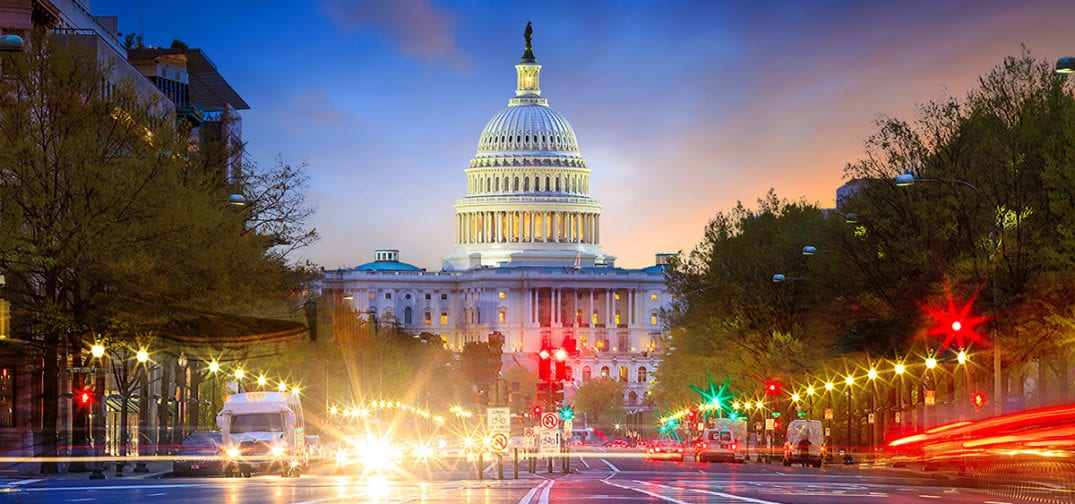Just before the Thanksgiving recess, the House Judiciary Committee made history by voting in favor of the Marijuana Opportunity, Reinvestment and Expungement Act, or MORE Act, making it the first comprehensive marijuana reform legislation to be cleared by a congressional committee.
The MORE Act — introduced by House Judiciary Committee Chairman Jerry Nadler with a companion bill introduced in the Senate by Democratic presidential nominee Kamala Harris — would decriminalize marijuana at the federal level by removing it from Schedule I of the Controlled Substances Act and effectively allowing states to set their own cannabis laws and policies.
Along with federal descheduling, the bill also includes a broad set of retroactive criminal justice reform and social equity provisions.
What would the MORE Act do?
Most notably, the bill imposes a 5% sales tax on all cannabis products which would be used to fund the creation of a “Cannabis Justice Office.” This office would be tasked with administering the newly established “Community Reinvestment Program” which provides funding for job training, literacy programs, youth recreation and mentoring programs, health education programs, and substance use treatment services. The Community Reinvestment Program would also fund reentry services for those transitioning out of incarceration as well as legal aid for both civil and criminal cases, including expungement of cannabis convictions;
The tax would also fund a cannabis opportunity program and an equitable licensing grant program. The Cannabis Opportunity Program would provide any eligible state or locality funds to make loans under the Small Business Act section for cannabis businesses owned and controlled by socially and economically disadvantaged individuals. These funds would specifically be utilized to develop and implement equitable cannabis licensing programs that minimize barriers to cannabis licensing and employment for individuals most adversely impacted by the War on Drugs.
Beyond ensuring that these state and local programs adhere to requirements set to have the broadest impact on disproportionately impacted communities, including ensuring that cannabis convictions are not a barrier to licensing, the bill also requires that any potential state or locality grantee has “taken steps to”:
- Create an automatic process, at no cost to the individual, for the expungement, destruction, or sealing of criminal records for cannabis offenses; and
- Eliminate violations or other penalties for persons under any type of State or local criminal supervision for a cannabis offense.
The bill also includes retroactive criminal justice measures, meaning that the bill will not only ensure that individuals are not criminalized for cannabis use going forward, but also that those who were punished for past cannabis offenses now have an avenue for relief. These measures include:
- Automatic expungement of federal cannabis offenses;
- Sentencing review and potential resentencing for any individual currently serving a criminal justice sentence for a federal cannabis offense. This also includes representation for indigent individuals currently incarcerated, a right that is generally not afforded post-conviction in the US.
MORE Act Flaws
Unfortunately, the bill only goes so far as to provide relief for a narrow class of offenses — that is, any offense that would now be legal or decriminalized after the passage of the bill, including under state law. Additionally, as federal legislation, the MORE act can only provide relief for those convicted of a federal offense. States still control opportunities for relief for those convicted at the state level.
Despite these limitations, the MORE Act goes farther than any current piece of federal legislation at attempting to undo the devastating effects of prohibition, particularly on marginalized communities. The Act even goes so far as to specifically state that there will be no discrimination in the provision of federal public benefits or for the purposes of immigration law on the basis of use, possession, or past cannabis offenses, two issues that continue to impact our veteran and immigrant communities.
Despite the historic vote in the Judiciary Committee, however, the MORE Act faces an uphill battle to passage. Several other House committees must first approve or waive the bill before it even gets to the floor of the House. Although passage in the democratically-controlled House may be possible, the bill would almost certainly fail in “grim reaper” Mitch McConnell’s Senate.
Editor’s note: This article is an editorial contribution from the Last Prisoner Project. Learn more at LastPrisonerProject.org.
Get daily cannabis business news updates. Subscribe
End
